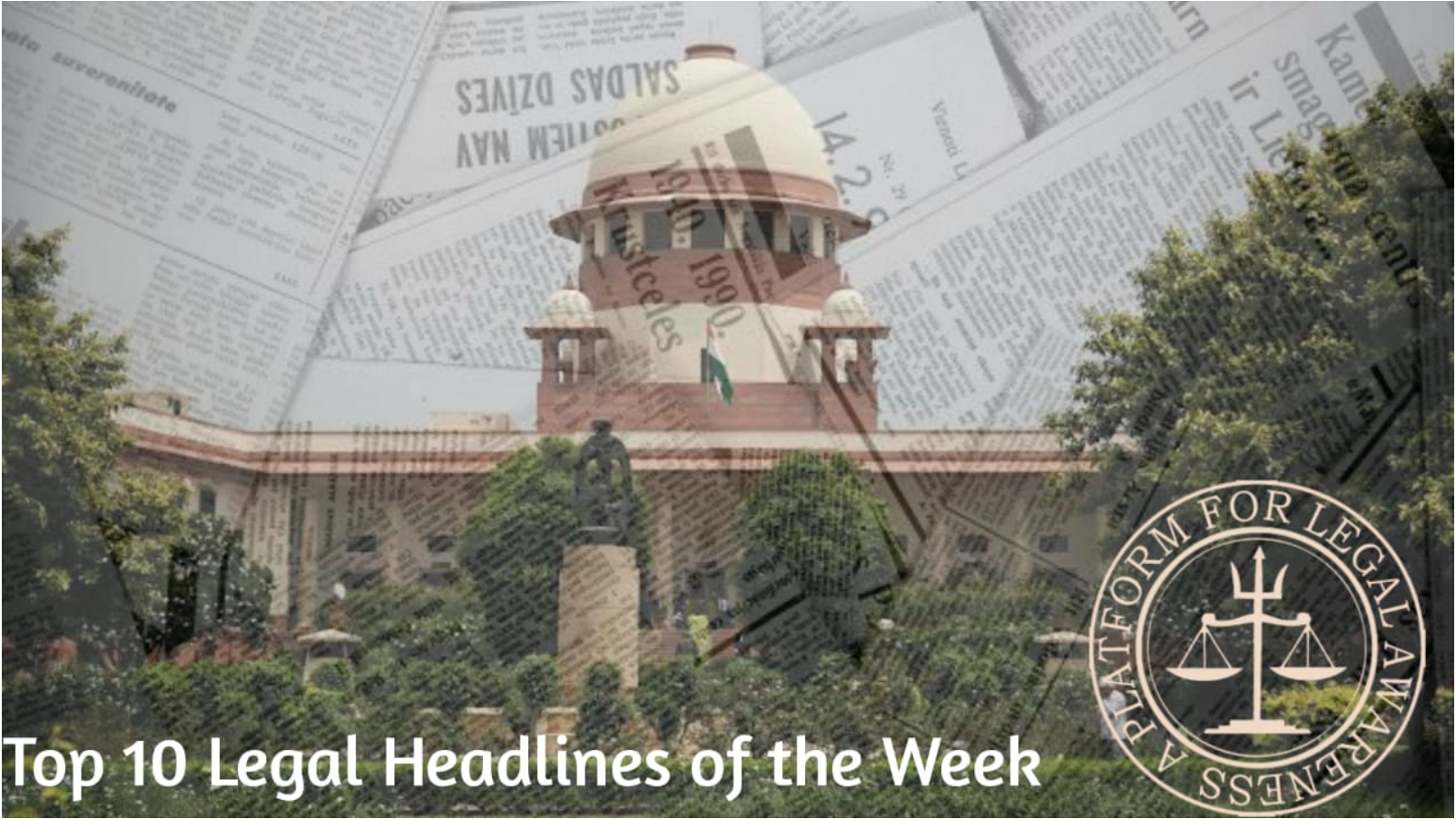1. Supreme Court Agrees to List Petitions Challenging Waqf Amendment Act
The Supreme Court agreed to list petitions challenging the Wakf (Amendment) Act, 2025. Senior Advocate Kapil Sibal, representing Jamiat Ulama-i-Hind, mentioned the matter before Chief Justice of India Sanjiv Khanna. Sibal sought urgent listing, citing concerns over the constitutional validity of the amended law. The CJI assured us that the case would be listed for hearing soon. The Waqf Amendment Act has sparked significant legal and political debate, prompting several stakeholders to seek judicial review.
2. Man Acquitted in Wife’s Suicide Case; Past Quarrels Not Enough for Conviction: Supreme Court
The Supreme Court has acquitted a man convicted nearly 30 years ago for allegedly abetting his wife's suicide, ruling that strained marital relations or past quarrels alone cannot justify conviction under Section 306 of the IPC. The Court emphasised that mere harassment allegations without clear evidence of instigation or intent are insufficient for abetment. The judgment reinforces the need for concrete proof to uphold a conviction in such cases.
3. If ED Has Fundamental Rights, It Must Respect Citizens' Rights Too: Supreme Court
The Supreme Court on Tuesday pulled up the Enforcement Directorate (ED) for filing a writ petition under Article 32, typically used by individuals to protect their fundamental rights. The ED had sought a transfer of the Nagarik Apurti Nigam (NAM) scam case from Chhattisgarh to Delhi. Responding sharply, the Court remarked that if the ED claims fundamental rights, it should also be mindful of the fundamental rights of citizens. The matter has sparked debate over the agency’s legal standing in such petitions.
4. SC Sets Timelines for Governor’s Action on Bills, Declares BK Pavitra a ‘Bad Law’
In a landmark ruling, the Supreme Court laid down strict timelines for Governors to act on bills under Article 200 of the Constitution. The Court emphasised that Governors must generally act in accordance with the advice of the Council of Ministers and not delay assent to bills indefinitely. It also declared the BK Pavitra judgment as a "bad law." The ruling clarifies the constitutional limits on a Governor's discretion, reinforcing accountability within the framework of federal governance.
5. Law Must Protect Foreign Investments, Says Supreme Court
The Supreme Court emphasised the importance of upholding the rule of law to safeguard foreign investments in India. While restoring a criminal case against Moon June Seok, former CFO of Daechang Seat Automotive, the Court noted that legal systems must ensure investor confidence and accountability. It stated that protecting the interests of foreign investors is essential for maintaining India’s global economic credibility and fostering a secure business environment.
6. Supreme Court quashes CBI Probe into Supernumerary Posts in WB Schools
The Supreme Court set aside the Calcutta High Court’s order for a CBI probe into the West Bengal Cabinet’s decision to create supernumerary posts in State-run and aided schools. However, the Court clarified that other directions by the High Court, including those related to the termination of 25,753 appointments, will remain unaffected. The ruling narrows the scope of investigation while upholding broader accountability in the teacher recruitment scam.
7. Painful to Act Against Lawyers at Career's End: Justice Bela Trivedi
Supreme Court judge Justice Bela M Trivedi expressed her anguish over having to take disciplinary action against lawyers so close to her retirement. “It is painful to take action against lawyers at the fag end of my career,” she remarked during court proceedings. Justice Trivedi, who is set to retire on June 9, emphasised the importance of professional ethics and decorum in the legal fraternity, even as she voiced regret over the necessity of such actions.
8. Anticipatory Bail in Economic Offences Should Be Rare: Supreme Court
The Supreme Court has reiterated that anticipatory bail should be granted sparingly in cases involving economic offences, stressing their serious nature. The observation came while setting aside bail granted to several accused in the Adarsh Group of Companies scam. The Court noted that economic crimes are a "class apart" due to their impact on the financial system and public trust. They must be dealt with stringently to ensure accountability and deterrence.
9. Supreme Court Accepts CBI's Apology for FIR Filed 'By Mistake' Despite Stay Order
The Supreme Court accepted the Central Bureau of Investigation’s (CBI) apology for mistakenly registering an FIR violating a stay order. The case involved allegations of a man impersonating an Intelligence Bureau (IB) officer to extort money. The Court also issued a caution, stressing that routine transfers of criminal cases to the CBI should be avoided. It emphasised that CBI investigations should be ordered only in exceptional cases, ensuring the agency's role is used judiciously.
10. Supreme Court Limits President's Power on Withholding Bills Passed by State
In a landmark ruling on April 8, the Supreme Court of India clarified the powers of Governors and the President regarding bills passed by State legislatures. The Court held that the President does not possess an absolute veto or a pocket veto over bills and that such orders are subject to judicial review. It further emphasised that the constitutionality of a bill is ultimately a matter for the judiciary to decide. This ruling specifically dealt with Article 200 of the Constitution, outlining the Governor's role in reserving bills for the President's consideration, as well as the limits on the President's powers under Article 201.

